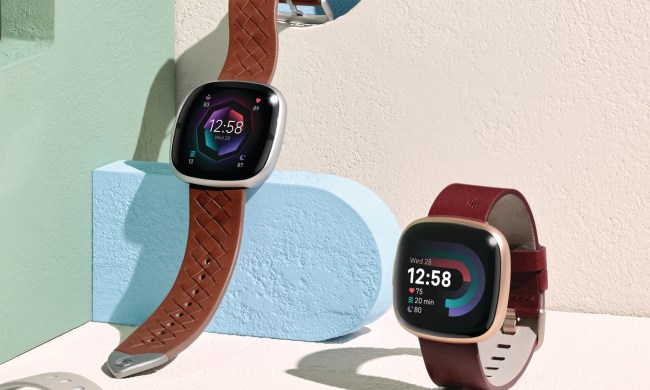Fitbit’s atrial fibrillation (AFib) detection feature is finally live following its FDA approval and is poised to do a lot of good for its users. AFib is a heart condition where a person’s heartbeat rhythm is irregular making them much more susceptible to things like strokes, heart attacks, and other critical heart conditions. Now that your Fitbit is able to detect AFib, the wearable tech might just save your life.
AFib affects millions of people globally, but it’s difficult to detect in its early stages due to a general lack of noticeable symptoms before severe ones take over and threaten the lives of those affected. Luckily, Fitbit’s AFib detection feature can notice irregular heartbeats and alert the wearer if they’re displaying symptoms of AFib.
The rollout of the feature began this week and will continue over the next several weeks for those in the U.S. Currently, the feature is only available in the one region, but Fitbit has expressed that it wants to extend the feature to other regions as well but that it will take time.

Once the feature has been added to your Fitbit app, you’ll be notified if your device detects any heart rhythm issues via the “Today” and “Discover” tab in your app. The company told 9to5Google that it recommends Fitbit users check the tabs on a daily basis to keep up with their heart health and stay informed.
Fitbit makes sure to point out that its detection feature cannot diagnose a person with AFib, but simply gather heartbeat data and notify them to have a conversation with their doctor about a possible diagnosis.
The list of Fitbit devices that supports the AFib feature is as follows:
- Fitbit Charge 3
- Fitbit Charge 4
- Fitbit Charge 5
- Fitbit Inspire 2
- Fitbit Luxe
- Fitbit Sense
- Fitbit Versa 2
- Fitbit Versa 3
- Fitbit Versa Lite
The software behind the detection feature makes it simple to run and doesn’t require the relatively new ECG monitors that the latest wearable tech has. As a result, older devices like the Charge 3 and the Inspire 2 are able to utilize the feature. In order to use the AFib detector, make sure that your Fitbit has the latest firmware update downloaded.


